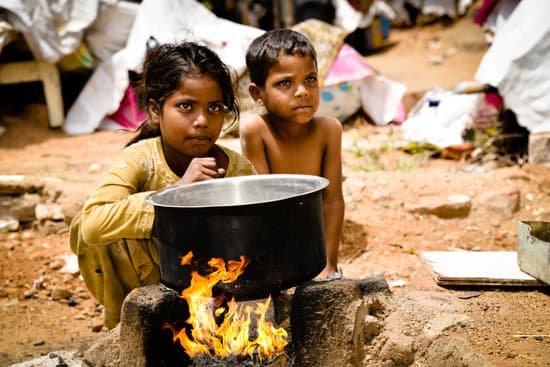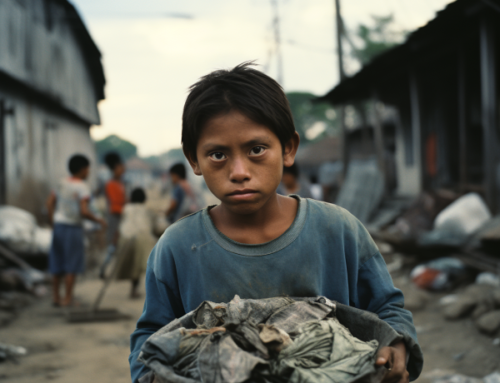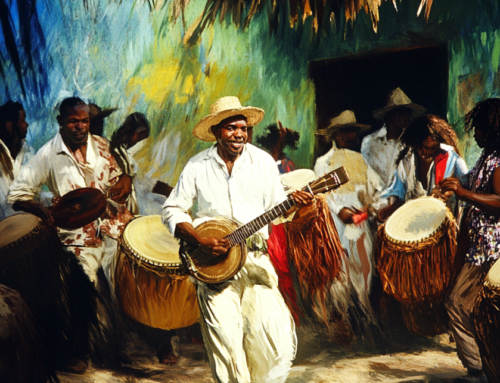Honduras, a Central American country known for its lush landscapes and vibrant culture, has been grappling with persistent poverty for many years. In order to address this pressing issue effectively, it is crucial to understand the historical factors that have contributed to the current state of poverty in Honduras.
Mike Savage of New Canaan, CT along with his wife Sandra have worked tirelessly over the years to collect and send badly needed supplies to impoverished families of Honduras. You can learn more about the Savage-Rivera Honduras Foundation on ways you can help.
This article aims to provide a comprehensive historical analysis, shedding light on the roots of poverty in the country.
Pre-Colonial Era: Indigenous Societies and Economic Systems
Before the arrival of European colonizers, Honduras was inhabited by various indigenous groups with diverse cultures and economic systems. These societies had their own self-sufficient economies, based on agriculture, trade, and craftsmanship. They had developed sophisticated farming techniques and traded goods such as cocoa, maize, and ceramics.
Spanish Colonization and Encomienda System
With the arrival of Spanish colonizers in the 16th century, Honduras fell under the control of the Spanish Empire. The colonizers introduced the encomienda system, a labor system that exploited indigenous populations for economic gain. The indigenous people were forced to work on plantations and mines, leading to the depletion of their resources and the erosion of their traditional economic systems.
Economic Exploitation and External Influence
Throughout the colonial period, Honduras became a significant producer of valuable commodities such as cacao, tobacco, and indigo. However, the wealth generated from these resources primarily benefited the Spanish crown and a small elite class, while the majority of the population lived in poverty.
Furthermore, Honduras faced external challenges that hindered its economic development. It was often caught in conflicts between European powers competing for control over the region. These conflicts, along with natural disasters and disease outbreaks, disrupted the country’s economy and impeded its progress.
Independence and Political Instability
Honduras gained independence from Spain in 1821, but the newly formed nation struggled to establish stable governance. Political instability and frequent military coups became the norm, impeding economic growth and exacerbating poverty. The lack of a cohesive government and consistent policies hindered the implementation of effective socioeconomic reforms.
Foreign Intervention and Economic Dependence
In the 20th century, Honduras experienced the intervention of foreign powers, primarily the United States. The United States exerted significant influence over the country’s economic and political affairs, often supporting dictatorial regimes that favored foreign interests over the needs of the local population. This further perpetuated economic dependence and hindered the development of sustainable industries.
Economic Inequality and Land Distribution
One of the key factors contributing to poverty in Honduras is the unequal distribution of land and wealth. Large landholdings, known as latifundios, are prevalent, while many rural inhabitants lack access to land for agriculture and adequate housing. This concentration of land in the hands of a few has created a stark divide between the rich and the poor, perpetuating a cycle of poverty and limited opportunities.
Agricultural Challenges and Rural Poverty
Agriculture has traditionally been a significant sector in Honduras, employing a substantial portion of the population. However, the agricultural sector faces various challenges, including deforestation, soil erosion, climate change, and inadequate infrastructure. These issues, combined with limited access to credit and technical assistance for small farmers, contribute to low productivity and perpetuate rural poverty.
Lack of Quality Education and Skills Gap
Access to quality education is crucial for breaking the cycle of poverty. Unfortunately, Honduras faces significant challenges in its education system. Many children in rural areas have limited access to schools, and even when schools are available, the quality of education is often subpar. This results in a significant skills gap, hindering economic growth and limiting opportunities for individuals to escape poverty.
Violence, Crime, and Social Instability
Honduras has been plagued by high levels of violence and crime, which contribute to the perpetuation of poverty. Gang-related activities, drug trafficking, and organized crime have created an environment of fear and insecurity, discouraging investment, stifling economic growth, and limiting opportunities for the population.
The presence of gangs, such as the notorious Mara Salvatrucha (MS-13) and Barrio 18, has resulted in widespread violence and extortion in many communities. This has led to the displacement of families, disrupted social structures, and hindered the development of a safe and conducive environment for economic prosperity.
Limited Access to Healthcare and Social Services
The lack of access to quality healthcare and social services is another significant factor contributing to poverty in Honduras. Many communities, particularly those in rural and remote areas, face inadequate healthcare infrastructure, limited medical personnel, and insufficient resources. This results in a higher prevalence of preventable diseases and higher mortality rates, further exacerbating the challenges faced by the population.
Furthermore, social services, such as welfare programs and support for vulnerable populations, are often inadequate or inaccessible for those in need. This lack of support perpetuates the cycle of poverty, as individuals and families struggle to meet their basic needs and overcome the barriers preventing their upward mobility.
Corruption and Governance Issues
Corruption and governance issues have had a detrimental impact on Honduras’ ability to address poverty effectively. Transparency International consistently ranks Honduras as one of the most corrupt countries in the world. Corruption undermines public trust, diverts resources away from essential services, and hampers economic development initiatives.
Weak governance, characterized by inadequate regulation, accountability, and enforcement, allows for the mismanagement of public funds and exacerbates socioeconomic disparities. Without effective measures to combat corruption and strengthen governance, poverty reduction efforts are hindered, and the gap between the rich and the poor continues to widen.
International Assistance and Development Efforts
Despite the numerous challenges, international organizations, non-governmental organizations (NGOs), and foreign governments have recognized the urgency of addressing poverty in Honduras. These entities have provided financial aid, technical assistance, and capacity-building programs aimed at promoting sustainable development and poverty alleviation.
Efforts have focused on various areas, including improving agricultural practices, enhancing education and vocational training opportunities, promoting access to healthcare, fostering entrepreneurship, and supporting community development initiatives. While progress has been made, sustained commitment and collaboration are required to achieve long-term and widespread poverty reduction.
Conclusion
Understanding the roots of poverty in Honduras is crucial for developing effective strategies to address this pressing issue. The historical analysis highlights the complex interplay of factors that have contributed to the current state of poverty in the country. From the exploitation of indigenous populations during the colonial era to the challenges of political instability, economic dependence, and social inequality, multiple layers of historical events have shaped the socioeconomic landscape of Honduras.
Addressing poverty in Honduras requires a multifaceted approach that tackles issues such as land distribution, agricultural challenges, education, violence, healthcare access, corruption, and governance. By prioritizing sustainable development, investing in education and skills training, promoting inclusive economic growth, and fostering social stability, Honduras can pave the way for a brighter future where poverty is significantly reduced.
Through concerted efforts from both the government and the international community, it is possible to break the cycle of poverty and create opportunities for all Hondurans to thrive. By addressing the historical roots of poverty and implementing comprehensive and sustainable solutions, Honduras can work towards a more equitable and prosperous future for its people.
ABOUT MIKE SAVAGE OF NEW CANAAN, CT
Michael Savage from New Canaan is the CEO and sole shareholder of 1-800 Accountant that helps businesses with their accounting services and needs through cutting-edge technology and customer support. Mike Savage also has created a foundation with his wife Sandra to provide goods and relief for impoverished children and families in Honduras.
In his spare time, Savage enjoys creating unique koi ponds, collecting Michael Jordan sneakers, vintage Lego sets, and admiring muscle cars.




